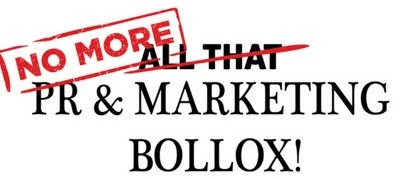

When it comes to PPC, a certain PPC case study comes to mind that shows one of the major pitfalls of running a PPC campaign in a crowded marketplace...
We had a client who was hoping to rank for the search term CRM, or “customer relationship management.” They were offering a piece of software in a very crowded marketplace and we had worked with them for some time on inbound marketing and they asked us to get an active PPC campaign going. The goal was to amass a significant volume of leads which we could track and develop using an inbound educational lead nurture programme.
Our primary goal for the client was to place bids that would put them in one of the top three positions in Google Adwords for at least part of day - this was pre-Google’s removal of the sidebar ads. Our belief, and theirs, was and is, that these are really the only slots worth paying for. However, because they were in such a crowded marketplace and were a smaller player, the top three bidders for CRM (Oracle, Salesforce and Microsoft) were consistently outbidding them.
Those major players had structured their Google AdWords accounts management to enable them to dynamically adjust their bids in response to others and thus, effectively set their bid engine to always outbid others. This means that if you have bottomless pockets—which all three of these companies do—you can prevent a smaller company from ever placing. In effect, they have the buying power to outbid everyone else, every time.
As a result, it was virtually impossible to get our client into the top three, unless they paid an inordinate amount of money. We did however, force the larger competitors to increase the size of their budget, as every day we pushed up our bids - so did they. Of course, we didn't lose any money because we were unable to win the auctions and place in the top three; we just forced the big guys to spend more of theirs. The budget we needed to put into the system to achieve anything else was far beyond what the client was comfortable with.
With that last anecdote in mind, you might be wondering at this point what happens when two bidders put forth the exact same budget. And just to make things interesting, I should mention that the outcome of the PPC auction isn’t based entirely on budgets. In calculating your ranking position in a PPC campaign, Google also takes into account the relevance of the web page that you’re driving people to. If you have a strong web-page that you’re driving people to- you don’t have to bid as much. Of course, just like the secret SEO algorithm under lock and key, we don’t know exactly how much this matters. However, what we do know is that Google looks at content, how many people have visited the site organically, and the relevance of the material to that particular search term.
In essence, all Google is trying to do is operate as a sensible reference system for relevant material. It’s not trying to cheat its users or reward scammers. As we know, it wouldn't behove Google to place top paid slots that provide a user with subpar content. Of course, economics are still at play here—if I bid significantly more money than my competitor, there’s not much that content can do to make up for that. But if you bid the same amount, the content which is more relevant is more liable to be on top.
If you’re a business owner who’s never run a PPC campaign before, there’s nothing to lose by experimenting with some search terms you can afford to place for. There’s definitely potential business to be gained here.
The danger lies in thinking that PPC is going to do all the work for you and thus you don’t need to put any effort into organic search. If you don’t see any business coming through via your organic search activity—or worse, you’re not even monitoring it—then it’s pretty unlikely that putting money into PPC will do any good. Why wouldn't you do something for free first?
Once you are ready to start running PPC campaigns, make sure you’re diligent and honest with yourself about measurement and whether or not your efforts are producing conversions. If you start spending your money on PPC and your website traffic doesn't increase, then it’s having no effect and you’re just wasting money. If your web traffic goes up but you're not getting more enquiries, then perhaps your messaging is off or not relevant to your search term. Lastly, if you’re getting more enquiries from launching a campaign—and most importantly, you can track the source of those enquiries— then there’s every likelihood you’re on the right track.
Tip #36: Don’t implement PPC at the expense of your SEO efforts; both matter and work together to bring more traffic and leads to your business.
If you'd like to receive the latest 'All that PR & Marketing Bollox...Explained!' blogs straight to your inbox every week, you can subscribe below:




Submit a Comment